Salary Negotiation Letter Template for Professional Requests
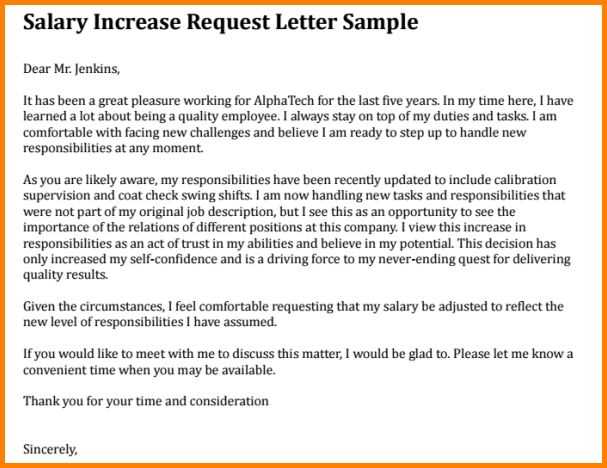
When it comes to discussing your compensation, expressing your needs and expectations in writing can set the tone for a productive conversation. It’s essential to present your case in a clear, confident, and professional manner. The key to success lies in how you structure your appeal, ensuring that it is both respectful and persuasive. A well-crafted document can open doors to better pay or benefits, highlighting your contributions and value to the company.
Important Aspects to Consider
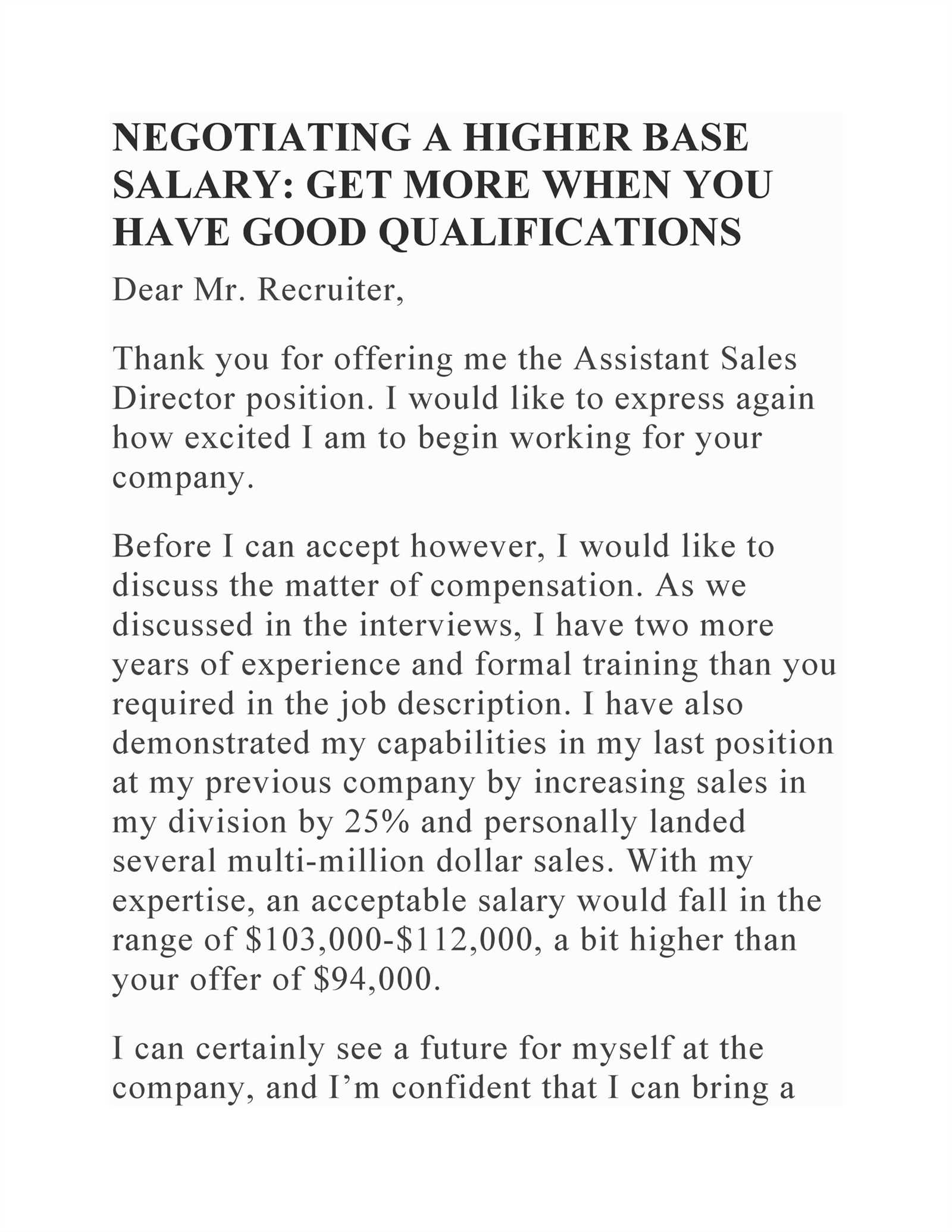
To create a compelling appeal, it’s crucial to focus on several key factors:
- Clarity: Be direct and specific about your request without unnecessary details.
- Confidence: Express your value to the company and the reasons why an adjustment is warranted.
- Professionalism: Maintain a respectful and courteous tone, even if the request is challenging.
- Research: Include relevant market data or examples that support your desired outcome.
Structure and Format
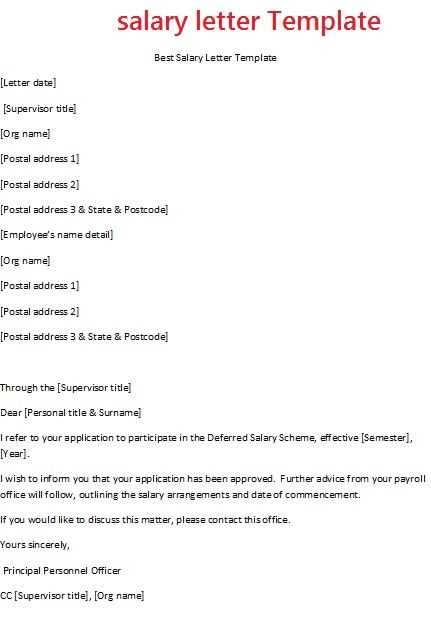
The structure of your appeal should be clear and concise. Begin with a formal greeting and a brief introduction outlining the purpose of your message. Then, state your request, backing it up with reasons and evidence. Conclude with a respectful closing, indicating your willingness to discuss the matter further.
Key Elements to Include
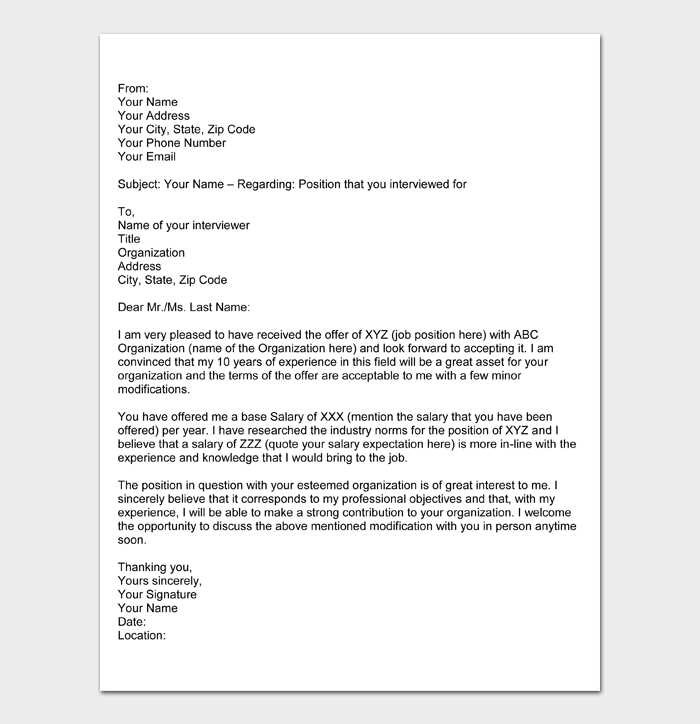
Your communication should cover the following elements:
- Introduction: Start with a brief overview of your role and achievements within the company.
- Request: Clearly state the desired change in your compensation or benefits.
- Rationale: Provide reasons for your request, such as market comparisons or increased responsibilities.
- Conclusion: End with a polite closing, offering to discuss the matter at a convenient time.
Following Up After Your Request
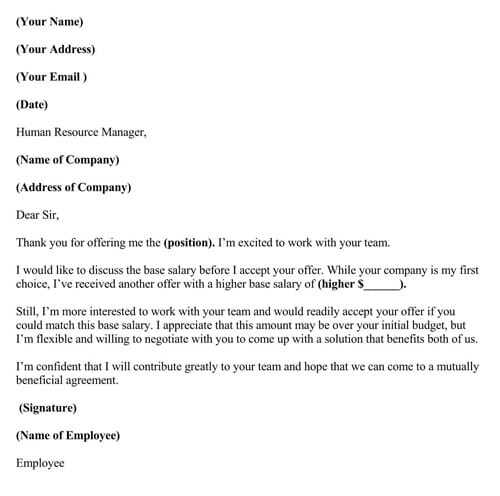
Once your appeal has been submitted, it’s important to be patient, but also prepared for a follow-up. If you haven’t received a response within a reasonable timeframe, send a polite reminder. Restate your key points and express your continued interest in discussing the matter. Remember, persistence, when done respectfully, can go a long way in achieving your goals.
Creating a Strong Request for Better Compensation
When asking for an adjustment to your pay or benefits, the way you present your request plays a crucial role in the outcome. A well-structured and thoughtfully worded appeal can significantly increase your chances of success. It’s important to communicate your intentions clearly and confidently, while avoiding common errors that could undermine your efforts.
Key Elements of an Effective Request
Your communication should highlight a few key components to be persuasive and impactful. Start by stating your value to the company, referencing specific contributions or achievements that demonstrate your worth. Follow up with a clear and direct statement of your request, supporting it with relevant data or market comparisons. Finish with a polite and professional conclusion, reinforcing your openness to further discussion.
How to Phrase Your Compensation Inquiry
The wording of your appeal can make a significant difference. Be precise and confident in your language, while also being respectful. Avoid over-explaining or being overly assertive; instead, focus on expressing your request as a reasonable and justified step. Use phrases like “I believe my current compensation does not fully reflect my contributions” or “Based on my achievements and market data, I would like to discuss an adjustment.” This approach helps maintain a professional tone without sounding demanding.
Tips for Clear and Confident Communication
Clarity is crucial when making any request. Be concise and stay focused on the key points without drifting into unnecessary details. Confidence is also essential, as it shows that you believe in the validity of your request. Speak directly, yet respectfully, and avoid using language that could make you sound uncertain, such as “I think” or “maybe.” Always use positive and assertive language that conveys your professionalism.
Common Mistakes in Compensation Requests
Avoid common pitfalls that can weaken your approach. One major mistake is being too vague about your request, which can cause confusion or seem unprofessional. Additionally, it’s important not to focus too much on personal financial issues or grievances. Instead, keep the focus on your professional value and achievements. Another mistake is failing to back up your request with solid evidence, such as industry comparisons or specific performance metrics.
Avoiding Pitfalls in Your Approach
To strengthen your appeal, take steps to avoid typical errors. First, ensure that your tone remains respectful and professional, even when discussing sensitive topics. Be mindful of the timing and context of your request, choosing an appropriate moment when your supervisor is likely to be receptive. Furthermore, ensure that your request aligns with the company’s policies and compensation structure to avoid creating unrealistic expectations.
When to Send Your Compensation Request
Timing is an important factor when presenting any request. Ideally, you should approach the subject after achieving significant accomplishments or when your performance has been notably strong. Avoid sending your request during stressful times for the company, such as budget cuts or restructuring. Timing it after a successful project or review can help create the right context for your request.
Timing Your Approach for Maximum Impact
To optimize your chances of success, carefully consider the timing of your request. If you’ve recently received positive feedback or have completed a major milestone, it’s an excellent moment to discuss a possible change. It’s also wise to send your message well ahead of any performance reviews or salary reviews to give your manager time to consider your request. By choosing the right moment, you can maximize the impact of your approach and increase the likelihood of a favorable outcome.